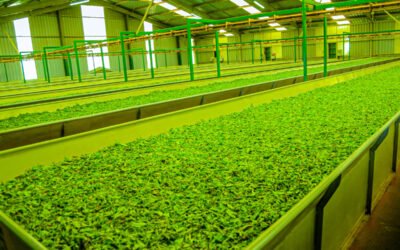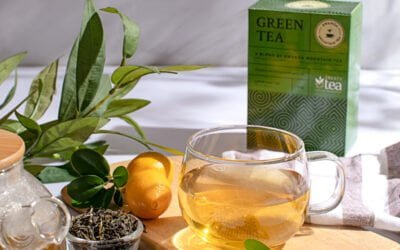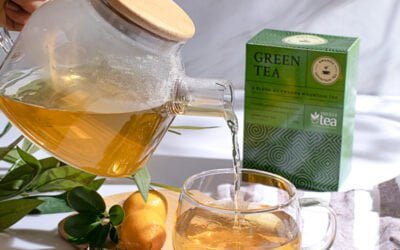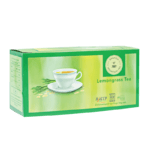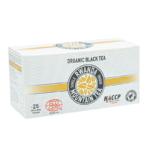Flavor Comparison: Organic vs. Conventional 🌱🍂
Organic Tea
Organic teas are cultivated without the use of synthetic pesticides, fertilizers, or herbicides. This results in a purer taste that many tea aficionados appreciate. Organic tea’s flavor can be described as:
- Pure and Clean: Free from chemical residues.
- True to the Terroir: Reflects the natural characteristics of the region where it’s grown.
- Rich and Complex: Higher levels of natural compounds like catechins enhance the flavor profile.
Example: Rwanda Mountain Tea produces exceptional organic green teas that capture the essence of Rwanda’s fertile volcanic soils, offering a unique and pure taste experience.
Conventional Tea
Conventional teas may be subject to chemical treatments during cultivation, which can affect their taste. These teas often present a:
- More Consistent Flavor: Due to controlled growing conditions.
- Potential Chemical Notes: Minimal, but sometimes detectable residues may influence the flavor for some palates.
Price Comparison: Organic vs. Conventional 💸
Organic Tea
Organic tea generally commands a higher price than conventional tea. This is due to:
- Higher Farming Costs: Organic practices are labor-intensive and less reliant on cost-cutting chemical inputs.
- Certification Fees: Organic certification involves stringent inspections and fees.
- Premium Quality: Reflects the dedication to sustainable and eco-friendly farming.
Example: Rwanda Mountain Tea, renowned for its organic varieties, offers premium teas that are a testament to sustainable agriculture and exceptional quality.
Conventional Tea
Conventional tea is typically more affordable because:
- Lower Production Costs: Use of synthetic chemicals can increase yield and reduce labor.
- Economic Scale: Mass production lowers costs.
Health Effects Comparison: Organic vs. Conventional 🍵💚
Organic Tea
Organic tea is often touted for its health benefits, including:
- Higher Antioxidant Levels: Studies show organic teas can have higher concentrations of beneficial compounds like catechins and polyphenols. Source
- Reduced Chemical Exposure: No synthetic pesticides or herbicides make it safer for consumption and environmentally friendly. PDF Source
Example: Rwanda Mountain Tea’s organic green tea is packed with antioxidants, promoting overall health and well-being.
Conventional Tea
While still beneficial, conventional teas might:
- Have Lower Antioxidant Levels: Compared to organic counterparts.
- Contain Residual Chemicals: Health impacts depend on levels of pesticide residues, although generally within regulated safety limits.
Health Benefits of Tea – Studies in Humans: Find out more here
Why Choose Rwanda Mountain Tea? 🌍🌱
Rwanda Mountain Tea exemplifies the best of organic tea production. Their commitment to quality, sustainability, and community development makes them a standout choice for tea lovers. Here’s why you should consider Rwanda Mountain Tea:
- Exceptional Quality: Hand-picked from fertile volcanic soils, ensuring a rich, pure taste.
- Sustainable Practices: Committed to eco-friendly and organic farming methods.
- Community Support: Fair trade practices that benefit local farmers.
Ready to taste the difference? Order your organic tea from Rwanda Mountain Tea shop and elevate your tea-drinking experience.
Join the Conversation! 💬
Which do you prefer, organic or conventional tea? Share your thoughts and experiences in the comments below. Let’s explore the delightful world of tea together!


